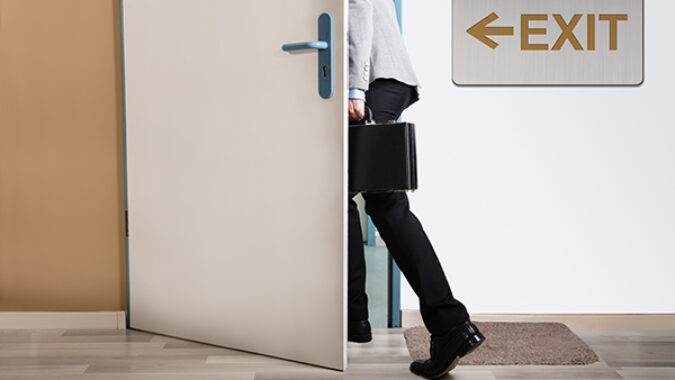Burnout continues to fuel the retention crisis
According to its latest study, McKinsey & Company has reported that more than 15 million US workers have quit their jobs since April 2021 with 40% of employees saying that they’re likely to quit in the next three to six months. This, because of burnout, the study revealed.
According to McKinsey, the pandemic has led to employee retention struggles that require serious reconsideration of how employers address mental well-being and they’re calling it the “Great Attrition”.
The largest-of-its-kind study released recently by leadership consulting firm DDI surveyed more than 15,000 employees and 2,000 HR professionals across 24 industries. The study found that nearly 60% of leaders reported feeling used up at the end of the workday.
Burnout has long been a concern for employers, and “leaders who are feeling burnout are now nearly four times more likely to leave their positions within the next year,” according to DDI. The length of the pandemic and the sustained effort required to keep companies afloat through uncertain times (and virtually) have increased exhaustion and stress. Meanwhile, the lines of work/life balance have blurred, families are facing increased financial anxiety, and the pandemic has put a strain on marriages and parents.
Staff need more support, but what does the ideal support system look like?
In today’s mental wellbeing landscape, support typically starts with professional care but this model of care is problematic because according to Benefit News, in the US, those needing mental health support have to wait an average of 19 days to been seen and only “if one of the 12% of therapists accepting new patients are in the person’s network”. Stigma and fear of repercussions also play a role; 40% of first responders, for example, say they don’t seek help from workplace services because they are afraid of getting fired.
Employers can be the leaders in making proactive mental health care accessible to Americans by doing the following:
- Implement meditation spaces and courses in the workplace is one solution. Sixty percentof employees experiencing anxiety in the workplace show marked improvement upon practicing meditation. Many workplaces are already introducing corporate mindfulness classes to their benefits, with stunning results.
- Champion overall health. Because stress has also been associated with poor eating behaviors and diet quality (both causing it and being caused by it), nutrition and exercise are key. It’s not reasonable to expect an employee working a nine-hour workday to have time to go to the gym after work, make a healthy dinner from scratch, and also spend time with his or her family without feeling burned out. If workplaces offered healthy meal options at work, and even nutrition courses, it could make a world of difference; it’s also important to create a culture that encourages physical activity during
The arrival of the pandemic brought with it isolation and real human connection is at the lowest point in history. Many family members live in different states or countries, and according to NPR, more than 60% of Americans say they are lonely.
McKinsey’s study revealed that this increase in loneliness has impacted people’s personal and professional lives and made workers more susceptible to burnout. This is especially true for non-White employees, who are “more likely than their White counterparts to say they had left because they didn’t feel they belonged at their companies.”
The bottom line
Workplaces can address the fundamental need for connection by acknowledging the connection between loneliness and burnout; rethinking workplace environments to allow for more socialization and communal working; creating peer-to-peer mentorship programs; introducing ways for employees to volunteer together for a company-backed social cause; or using a platform like Listeners On Call that enables employees to talk to trained listeners with a shared life experience anonymously and confidentially. Also, the platform has the ability to meet employees where they are today on their own personal journey of wellness.





